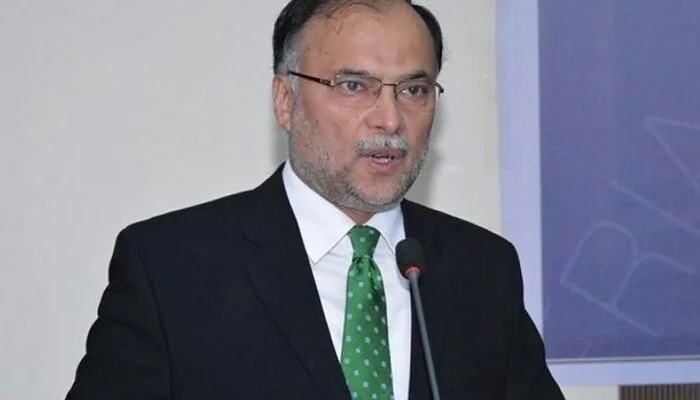
Federal Minister for Planning, Development & Special Initiatives Ahsan Iqbal emphasized the urgent need for export-led growth as the foundation for Pakistan’s long-term economic stability. Speaking at the Karachi Chamber of Commerce and Industry (KCCI), he stressed that short-term growth driven by domestic demand results in unsustainable economic cycles. “We need lasting growth, not artificial booms that collapse under import pressure,” he said.
Building Foreign Reserves through Exports
Iqbal highlighted the importance of building strong foreign exchange reserves to secure Pakistan’s future. He stated that those contributing to exports, from industrialists to home-based entrepreneurs, should be recognized as true national assets. “Exporters are the real VIPs of the economy,” he added, urging small and medium enterprises (SMEs), especially women entrepreneurs, to tap into global markets.
Uraan Pakistan and Private Sector Collaboration
Calling on KCCI to co-pilot the government’s Uraan Pakistan initiative, the minister stressed its success hinges on private sector participation. He urged KCCI to become an active driver of the project, warning against past patterns where similar programs failed to deliver. “Without KCCI’s involvement, we cannot ensure sustained momentum,” he stated.
He further called for a shift in national priorities, urging businesses to move beyond local markets and pursue international opportunities. “We must turn Pakistan into an exporting nation,” he said.
Pillars of National Success
Iqbal outlined four key pillars for sustainable development: peace, policy continuity, stability, and reforms. He pointed to countries like India, Bangladesh, and South Korea as examples of consistent commitment to these principles. “Pakistan must now make these pillars non-negotiable,” he said.
Looking ahead to Pakistan’s centennial in 2047, Iqbal challenged the nation to envision its place among Asia’s leading economies. “We have the potential to be among the top five in Asia, but only if we embrace innovation and long-term planning,” he noted.
Read: PIA Launches Direct Flights from Lahore to Baku to Boost Tourism and Trade
Innovation and Compliance Support
To boost competitiveness, Iqbal introduced the National Productivity, Quality, and Innovation Initiative. He also proposed establishing a Karachi Export Compliance and Innovation Cell to assist exporters with certifications, governance training, and trade facilitation.
He encouraged collaborations with academic institutions like IBA to foster innovation. Additionally, he proposed a SME Innovation Fellowship Program to connect experienced mentors with young entrepreneurs.
Iqbal also recommended forming a Green Karachi Business Alliance to promote sustainability in energy use, waste management, and carbon reduction—key requirements for future exports.
Concerns from Business Leaders
Chairman BMG Zubair Motiwala expressed concern over delays in implementing Uraan Pakistan. While praising the initiative’s vision, he criticized the lack of actionable results and urged the government to deliver. “When will our industry actually benefit from these policies?” he questioned.
Motiwala also highlighted issues related to high production costs. He emphasized that Pakistan’s gas, electricity, and water rates are uncompetitive compared to regional rivals like Bangladesh and Vietnam. “We’re not asking for subsidies—just a level playing field,” he said.
Regulatory Hurdles and Infrastructure Woes
The business community raised concerns about bureaucratic complexity, with 58 federal and provincial agencies involved in regulation. Motiwala recommended a streamlined four-window system for ease of doing business.
KCCI President Muhammad Jawed Bilwani also pressed for urgent resolution of Karachi’s persistent energy and water shortages. “Karachi contributes 54% of exports and 67% to the national exchequer. Yet, we face daily utility disruptions,” he said.
Bilwani urged the government to eliminate the peak/off-peak electricity tariff system and invest in Karachi’s infrastructure to support uninterrupted industrial activity.
Follow us on Google News, Instagram, YouTube, Facebook,Whats App, and TikTok for latest updates











